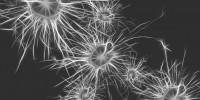
Why We Slow Down When Feeling Sick
Slow down. When we don’t feel good, the body shuts down. We feel listless and we tend to eat, drink and move less. This is because infections trigger a number of physiological and behavioural responses that are important for recovery.
This feeling of sickness and sense of nausea is not just a result of infection, but rather part of an adaptive response that includes changes in several motivated behaviours such as eating, drinking, and locomotion, and a decrease in core temperature.
Slow down: What neural mechanisms cause these responses?
Although we are all aware of the behaviours we engage in when we are sick, it is not yet clear what neural mechanisms are behind them. Are different responses controlled by a distributed, parallel network in which different cells regulate different aspects, or could a single population coordinate several different elements of the response?
A study published in September 2022 shows insights into the neural mechanisms. In this study, researchers administered LPS (lipopolysaccharide), a well-established means for activating the immune system and inducing sickness behaviour, and they used an unbiased approach to map the neuronal response. They observed that neurons in the nucleus of the solitary tract (NTS) and the area postrema (AP) in the brainstem are rapidly activated by LPS.
Using single-nucleus RNA sequencing (snRNA-seq), they then catalogued the active populations. Further studies showed that brainstem neurons that express a protein-coding gene called ADCYAP1 are indispensable for the behavioural response to the administered LPS. Then they observed reactions we all already know from own cases of illness. Once the neurons were activated, the animals’ water and food intake and locomotion were reduced. If they were then inhibited again, these responses weakened. The only reaction that is mediated not only by the neurons in the brainstem, but also from other sides, are thermal reactions – that is, the lowering of body temperature.
 Neurons positive for ADCYAP1, which is expressed in the NTS and AP, are both sufficient and necessary for the induction of the full behavioural response to LPS and thus play a key role in generating the sickness response.
Neurons positive for ADCYAP1, which is expressed in the NTS and AP, are both sufficient and necessary for the induction of the full behavioural response to LPS and thus play a key role in generating the sickness response.
The authors summarize, they have identified neurons in the nucleus of the solitary tracts and the area postrema as a fundamental neural substrate for regulation of sickness behaviours. They state:
 By elucidating a neural circuit responsible for the system-level physiological and behavioural changes induced in response to infection, these results provide an important new component linking infections, inflammation and behaviour. This has important implications for our understanding of how the immune system interacts with the brain.
By elucidating a neural circuit responsible for the system-level physiological and behavioural changes induced in response to infection, these results provide an important new component linking infections, inflammation and behaviour. This has important implications for our understanding of how the immune system interacts with the brain.